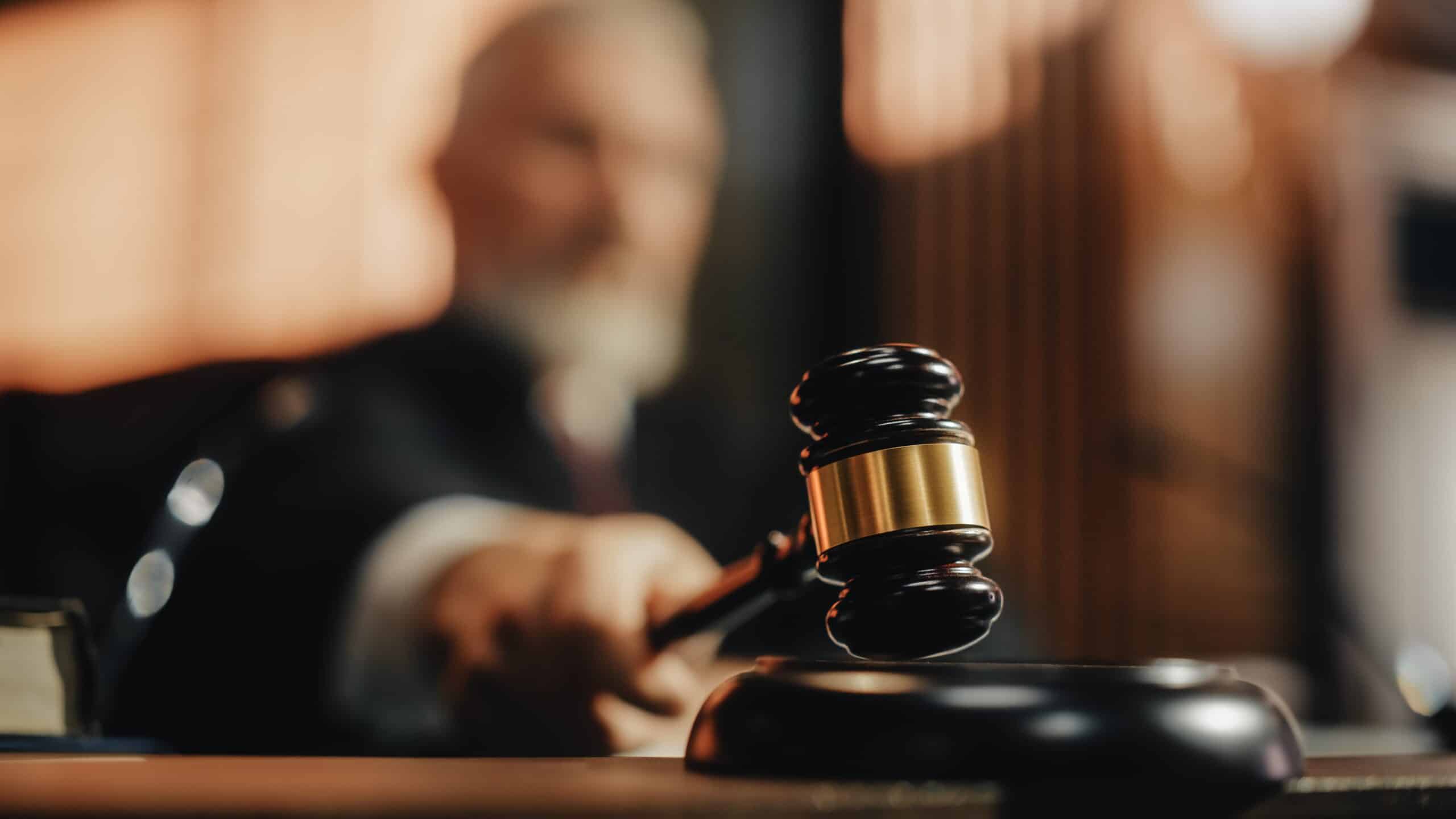Facing federal charges is a frightening and overwhelming experience that can have life-changing consequences. Unlike state crimes, federal crimes are prosecuted by the U.S. government and often carry drastic repercussions, including lengthy prison sentences and hefty fines.
If you or a loved one finds yourselves under federal investigation or has already been charged, don’t wait to seek legal guidance. Having a qualified Maryland federal defense lawyer is a must, as these cases are complex and can carry life-altering consequences.
What Makes a Crime Federal?
A federal crime is an offense that violates U.S. federal law. These cases fall under the jurisdiction of the federal government rather than the state of Maryland. Various governmental agencies investigate these cases, including:
- Federal Bureau of Investigation (FBI)
- Drug Enforcement Administration (DEA)
- Bureau of Alcohol, Tobacco, Firearms, and Explosives (ATF)
- Internal Revenue Service (IRS)
- United States Secret Service
Federal crimes often involve violations of laws that Congress has passed and can range from financial crimes to violent offenses. If you’re facing federal criminal charges, the U.S. Attorney’s Office for the District of Maryland will prosecute you.

Examples of Federal Crimes in Maryland
White Collar Crimes
White-collar crimes refer to non-violent crimes that are often financially motivated and involve deceit, fraud, or corruption. Common examples of these crimes include:
- Wire fraud
- Mail fraud
- Securities fraud
- Money laundering
Drug Trafficking and Distribution
Federal drug offenses are prosecuted under the Controlled Substances Act. These charges often arise from offenses such as large-scale drug trafficking operations or even possession with intent to distribute. These charges often come with mandatory minimum sentences, so if you’re facing them, having an experienced federal criminal lawyer on your side is a must.
Firearms Offenses
Federal gun crimes are prosecuted under various federal laws, including:
- 18 U.S.C. § 922(g): Possession of a firearm by a felon
- 18 U.S.C. § 922(a): Unlawful trafficking of firearms
- 18 U.S.C. § 922(c): Using a firearm in furtherance of a crime
The ATF is tasked with investigating such crimes. If convicted, the penalties can be severe, especially when weapons are involved in drug-related offenses or violent crimes.
Cybercrimes and Internet Fraud
Digital transactions are the norm nowadays, with many Americans using online banking services and completing various financial transactions online. This increased use of electronic transactions has led to an increase in cybercrime, which has become a major focus of federal law enforcement.
Examples of cybercrimes and internet fraud include:
- Identity theft
- Computer fraud
- Child exploitation
- Cyber espionage
- Cryptojacking
Public Corruption and Bribery
Public officials and private citizens can be prosecuted under federal laws if they’re found to be involved in bribery, embezzlement, or other corruption-related offenses. Federal courts handle these cases under key statutes like 18 U.S.C. § 201, which covers bribery of public officials, and 18 U.S.C. § 371, which applies to conspiracy to commit fraud against the U.S. government.

The Federal Criminal Justice Process in Maryland
If you’re facing federal criminal charges, the process will look a bit different than that of criminal charges handled within the state. The federal criminal justice system follows a structured process, which includes the following steps:
1. Investigation
Before filing charges, federal agencies conduct extensive investigations. During this period, they’ll begin to build the evidence against you. This phase may include surveillance, wiretaps, and subpoenas for financial records or electronic communications.
2. Grand Jury Indictment
Unlike state charges, which prosecutors can usually bring without requiring a grand jury, federal prosecutors must present their case to a grand jury. The grand jury will decide whether there is enough evidence to issue an indictment.
3. Arraignment
After an indictment, you will appear in federal court for your arraignment. This is where you’ll formally learn of your charges and must enter a plea of guilty or not guilty. During this hearing, the judge will consider whether you should be released on bail or remain in custody until trial.
4. Pre-Trial Motions and Plea Bargaining
In the pre-trial phase, your attorney may file motions to suppress evidence or dismiss charges. In most scenarios, federal cases are resolved through plea agreements. You may be able to plead guilty in exchange for reduced charges or lighter sentences. Your lawyer can help you determine whether entering a plea deal is in your best interest or if fighting the charges offers a better outcome.
5. Trial
If your case goes to trial, the prosecution must prove you are guilty beyond a reasonable doubt. You do not have the burden of proof in proving your innocence, but rather, the prosecution must prove your guilt beyond a reasonable doubt. The trial will take place before a judge and jury in the U.S. District Court for the District of Maryland.
6. Sentencing
Upon conviction, the judge will determine sentencing based on the Federal Sentencing Guidelines. These consider factors such as prior offenses and the severity of the crime. Judges may also consider mitigating factors, cooperation with law enforcement, and similar case-specific details when determining the final sentence.
7. Appeal
If you’ve been convicted, you have the right to appeal your conviction or sentence to the U.S. Court of Appeals. The appeals process allows for a review of legal errors that may have occurred during the trial or sentencing phase. If successful, an appeal could lead to a new trial, a modified sentence, or even a complete dismissal of charges.
The Importance of Hiring a Federal Criminal Defense Lawyer
Federal cases are considerably more complex than state-level cases, often carrying more severe penalties for convictions. If you’re facing federal charges, having help from an experienced federal criminal defense attorney is a must. Your attorney can provide:
- Strategic defense planning: Your attorney will analyze the evidence against you, identify holes or weaknesses in the prosecution’s case, and create a tailored defense strategy.
- Negotiation skills: Many federal cases end through plea bargains. Your attorney can help evaluate the options available to you and negotiate the best possible outcome.
- Protection of rights: Federal investigators and prosecutors have extensive resources. A skilled defense lawyer ensures your rights are protected through every step.
- Trial experience: If your case goes to trial, a knowledgeable federal criminal defense attorney can present compelling arguments and challenge the prosecution’s evidence against you.
Your attorney is your advocate throughout the process. They can help you work toward the best possible outcome, whether through a plea bargain or taking your case to trial, ensuring your rights are upheld through every stage.
Take Action Now: Secure the Defense You Need
Being charged with a federal crime in Maryland is a serious matter. If convicted, you could face steep fines, imprisonment, and probation, so having a skilled federal criminal defense attorney on your side is a must. This way, you don’t have to navigate the complexities of the federal criminal justice system alone.
If you or a loved one is facing charges, don’t wait—contact our knowledgeable Maryland federal defense lawyers at Jezic & Moyse to discuss your legal options and start building a strong defense. Call 240-292-7200 or complete our online contact form to start with a consultation.
